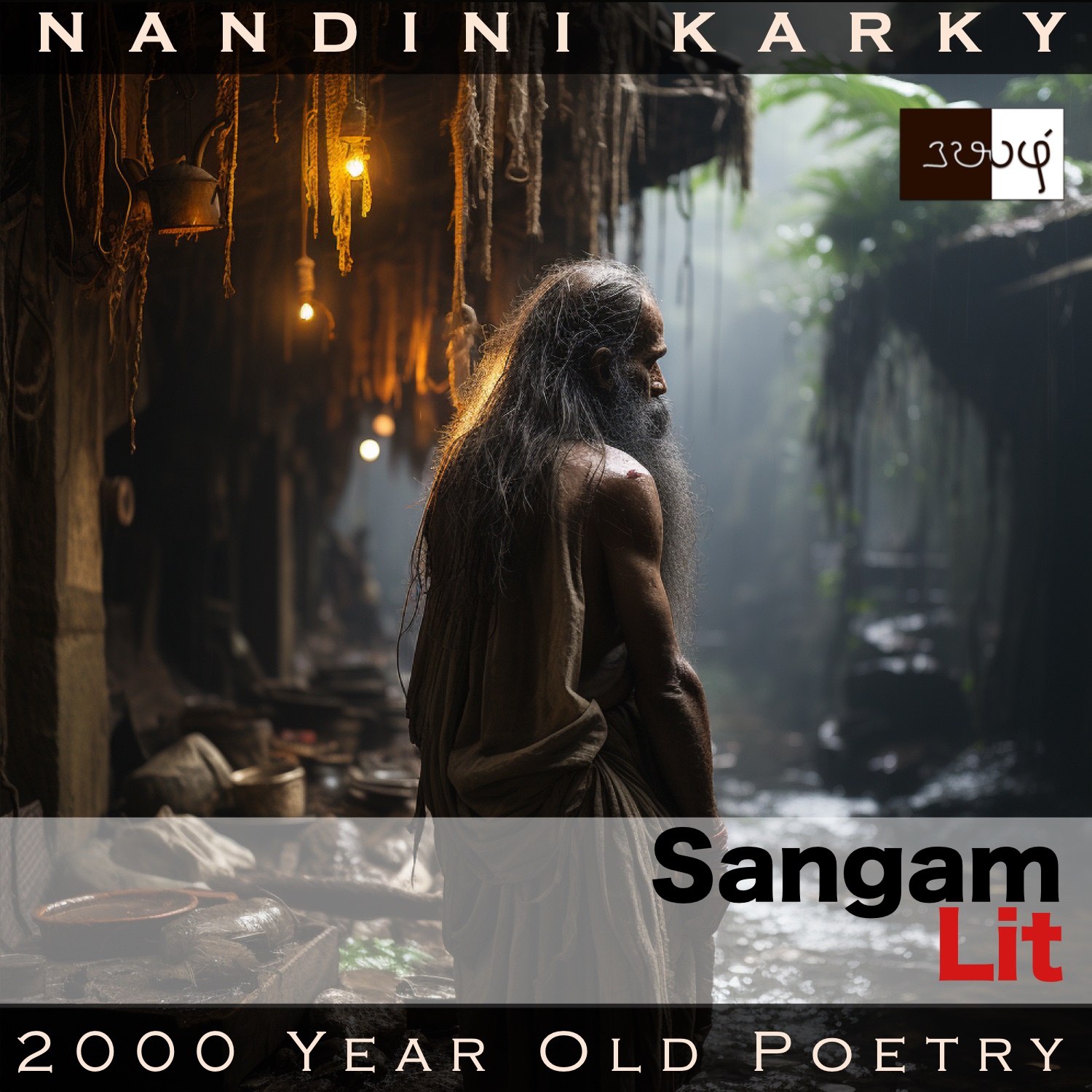Podcast: Play in new window | Download
Subscribe: Apple Podcasts | Spotify | Amazon Music | Android | iHeartRadio | Email | TuneIn | RSS | More
In this episode, we observe an overpowering emotion, as depicted in Sangam Literary work, Puranaanooru 220, penned about the Chozha King Koperunchozhan by the poet Poththiyaar. Set in the category of ‘Pothuviyal Thinai’ or ‘Common Themes’, the verse sketches a sense of loss and sorrow.

பெருஞ் சோறு பயந்து, பல் யாண்டு புரந்த
பெருங் களிறு இழந்த பைதல் பாகன்
அது சேர்ந்து அல்கிய அழுங்கல் ஆலை,
வெளில் பாழாகக் கண்டு கலுழ்ந்தாங்கு,
கலங்கினென் அல்லனோ, யானே பொலந் தார்த்
தேர் வண் கிள்ளி போகிய
பேர் இசை மூதூர் மன்றம் கண்டே?
Poththiyaar was a poet closely associated with the Chozha King Koperunchozhan, as we saw in the verse written by Pisiraanthaiyaar, describing their joyous friendship. On seeing King Koperunchozhan prepare to part away by facing north, this poet attempts to join the ruler. At this time, the king refuses to allow the poet join the company of those who were giving up their life with him, because this poet’s wife happened to be pregnant then. The king bids the poet to ensure the safe birth of the poet’s child before giving up his life along with the king. Accepting the king’s command, the poet leaves to the king’s capital, and there, he says these words:
“The sorrowful mahout, who has lost a huge male elephant that he reared with care for many years by rendering it huge amounts of food, seeing the once-uproarious space, where the elephant rested and resided, now reduced to ruins, would shed tears copiously. Akin to that, I cried too, when I saw the centre of the ancient and famous town, bereft of Killi, the one, who wears golden garlands and donates chariots many.”
Time to explore the nuances. The poet starts by making us envision a mahout, one who has been taking care of an elephant for many long years, finding it the huge amounts of food that it needs. Then one day, for some reason, that elephant dies. Imagine how this mahout would feel when he walks by the pavilion, where this elephant used to live. Wouldn’t the trumpeting sounds of the energetic elephant ring in his ears from the past? And seeing the dilapidated state of that pavilion, wouldn’t this mahout cry inconsolably? That was my exact emotion as I stepped into the ancient capital of our king Killi, an epithet given for Chozha rulers, and saw how it looked without the presence of this rich and generous monarch, the poet concludes.
One would think that in these Puranaanooru poems that focus on war, fame and material pursuits, there would be no space for the finer emotions of life. That’s where the Sangam folks prove us wrong. Even here, they bring in elements that illustrate what it means to lose something precious to us. The tears glistening on the mahout’s face and the same on this poet’s face can almost be touched through these words. That is the unique contribution of these ancient Tamils, who, time and again, have illustrated the importance of inner life, for they seem to have clearly understood that everything we do in the world outside is inevitably determined by how we manage the world within us!




Share your thoughts...